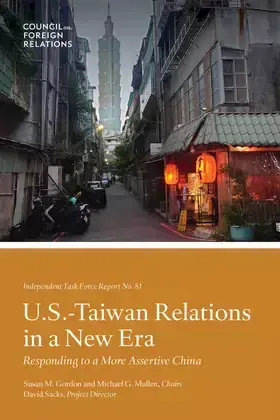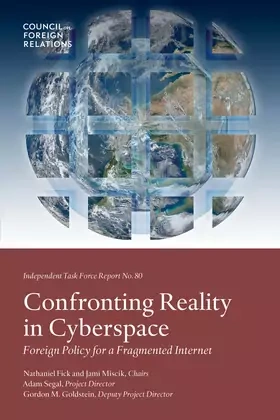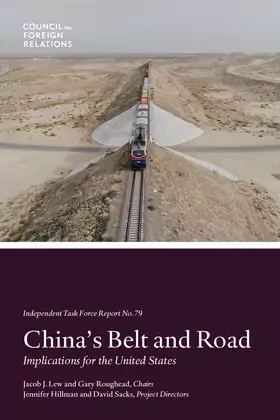Task Force Program
Recent Task Force Reports

U.S.-Taiwan Relations in a New Era
Although a conflict in the Taiwan Strait has thus far been avoided, deterrence has dangerously eroded. To maintain peace, the United States must restore balance to a situation that has been allowed to tilt far too much in China’s favor.

Confronting Reality in Cyberspace
The early advantages the United States held in cyberspace have largely disappeared as the internet has become more fragmented, less free, and more dangerous. The United States needs a new foreign policy for cyberspace to secure its economic and security interests.

China’s Belt and Road Initiative
China’s globe-spanning Belt and Road Initiative poses risks to participating countries and challenges to U.S. interests abroad. The United States should coordinate with partners to promote a secure and sustainable development agenda of its own.
CFR has launched a Task Force on Space Management Policy, chaired by retired Lieutenant General Nina Armagno, USSF, and former Congresswoman Jane Harman. Esther Brimmer, CFR’s James H. Binger senior fellow in global governance, serves as project director. Composed of thirty-five experts, the Task Force is examining challenges in low Earth orbit and beyond, places where the acceleration in human activity is most evident, in a time of heightened geopolitical and commercial competition. The Task Force aims to produce a consensus report in late 2024 that offers findings and recommendations that can help frame the future of the space economy, national security, and the sustainable use of the space domain.
-
What the United States and the international community have done for Mexico is unique. No other country, with the exception of Canada, could muster such support from the U.S.government. The Mexican p…
-
One of the highest national security priorities of the United States must be to help reduce tensions over the Taiwan issue. Domestic political trends in the People's Republic of China and Taiwan as w…
-
The U.S. approach to international conflicts in the post-Cold War period—how we think about them and what actions we take—is enormously affected by America's capabilities to quell them by diplomatic,…
-
Americans and Europeans can fairly debate whether NATO should expand in the near term or proceed with formal expansion only if Russia again seems to pose a military threat to Central Europe. But whic…
-
The U.S.-North Korean Agreed Framework of October 1994 holds the potential for resolving the Nuclear proliferation threat from the North, promoting stability on the Korean Peninsula, and furthering N…
-
The international community stands at a historic crossroads. In less than three months, delegations from around the world will convene in New York City to decide whether to renew the nuclear Nonproli…
 Online Store
Online Store









